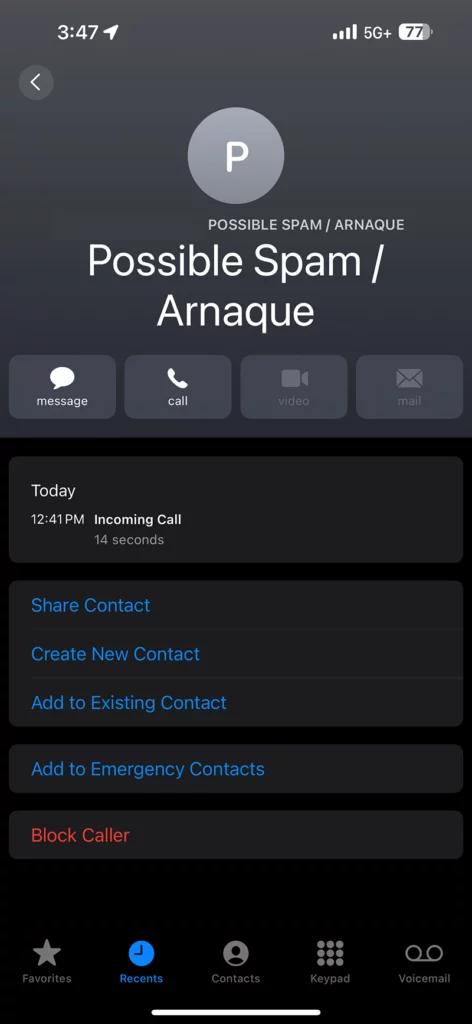It’s a chilling line, and it’s exactly what millions of Canadians have heard over the phone from people pretending to be from the Canada Revenue Agency.
🎙️ “You owe the government thousands of dollars, and if you don’t pay now, you’ll be arrested.”
But what if you could turn the tables? In this special episode of Case On The Case, host Rob T. Case sits down with tech expert Tristan Bolton, who didn’t just hang up—he recorded the scam call and dissected it for the world to hear. Get ready for an eye-opening listen that’s equal parts cautionary tale and digital sleuthing adventure.
Case On The Case Podcast Series
In this special episode, listeners will hear a real recorded call from a CRA scammer—followed by an in-depth breakdown of what happened, how these scams operate, and what steps you can take to stay protected or report suspicious activity.
The Podcast: CRA Scam Call Recorded
For weeks now, residents across Canada and the United Kingdom have been complaining about an aggressive phone scam, where the callers pose as agents for the federal tax authority, and use fear tactics to try and scare the victim into paying money.
Sadly the ploy has worked on an alarming number of people, with the overwhelming majority being on the older side of the population.
For more on other types of scams, please read The Algoist’s Tales of the Bait and Switch.
Police Have Issued Statements
Police have issued statements encouraging people to just hang up, as the tax authority would never call and behave in such a way.
So when tech expert Tristan Bolton got a call from a scammer, he couldn’t resist an attempt at trying to get the scammer to reveal some sort of identifying information.
He recorded the call and went through the paces with the scammer.
Tristan admits that even though he knew full well it was a scam, the threats and tone of the caller nonetheless gave him a slight feeling of anxiety.

When the call finally got to the point of payment, what the conman on the other end of the phone asked Tristan to do was entirely unexpected.
About The Podcast
Case On The Case is a new podcast series being developed by Rob T. Case, and this special episode was thrown together quickly to make sure the information got out to the public in a timely manner.
We hope you enjoyed this episode on the Case on the Case podcast series.
For more information on dealing with CRA scam calls and other related fraud issues in Canada, please visit the Government of Canada’s website for fraud related issues.
📵 Other Types of Scam Calls (and How Canada Is Fighting Back)
We’ve all heard about CRA scam calls, the ones where a robotic voice threatens you with arrest if you don’t pay your taxes right now. But that’s just the tip of the iceberg. Scam calls in Canada have grown more sophisticated, more varied, and more frequent. Whether it’s tech support fraud, fake immigration agents, or bogus prize winnings, fraudsters are constantly evolving their tactics.
Earlier today, I received a call flagged by my phone with a warning: “Possible Scam”. Out of curiosity, I answered. Sure enough, it was a scam—this time, a fake Amazon representative claiming there were suspicious charges on my account and urging me to press 1 to connect with an “agent.” It was a perfect example of how widespread and varied these calls have become—and how helpful it is that telecom providers are finally stepping in to do something about it.

📱 Common Types of Scam Calls in Canada
Here’s a rundown of some of the most common scam calls Canadians receive:
1. Tech Support Scams
Callers impersonate major companies like Microsoft, Apple, or Amazon, warning of viruses or suspicious activity. They often ask to remotely access your computer—leading to stolen data or ransom demands.
2. Immigration Scams
Targets are often new immigrants or visa holders. Scammers pretend to be from Immigration, Refugees and Citizenship Canada (IRCC) and threaten deportation unless immediate payment is made.
3. Bank and Credit Card Fraud Scams
Fraudsters claim there’s suspicious activity on your bank or credit card account, and attempt to collect sensitive information or get you to “verify” transactions you never made.
4. Prize and Lottery Scams
“You’ve won a contest!” they say. The catch? You must pay a “fee” or provide personal details to claim it. These calls play on excitement and impulse.
5. Romance and Relationship Scams
While usually run online, these scams occasionally transition to phone calls to build trust, deepen the con, or push for money.
🛡️ How Canadian Telecom Providers Are Fighting Back
Canada’s telecom industry is finally making headway in the fight against scam calls. Here’s how:
📛 1. Call Display Warnings (“Likely Fraud” or “Scam Likely”)
Rogers, Telus, and Bell have implemented enhanced caller ID features. If a call comes from a number flagged as suspicious, your phone may now warn you with a label like “Possible Scam”—just like the one I got today and as posted in the screenshot above.
🧠 2. STIR/SHAKEN Technology
This caller ID authentication framework ensures that the number showing up on your screen is actually the one being dialed from. It’s designed to reduce spoofing, where scammers make a call look like it’s coming from a legitimate local or government number.

🧰 3. Carrier-Level Spam Filtering
Telcos are beginning to auto-block high-volume fraudulent calls at the network level. Similar to how email spam filters work, these systems analyze patterns and behaviors to stop scams before they reach your phone.
📲 4. Mobile Apps for Added Protection
There are also third-party apps like Hiya, RoboKiller, and Truecaller—some supported or recommended by carriers—that offer crowd-sourced fraud detection and call blocking.
🇬🇧 Why O2 UK Has Earned My Loyalty—Even From Across the Pond
I may not be a UK phone customer, but O2 has completely won me over with their innovative and hilarious approach to scam prevention.
One standout initiative? An AI-powered “Granny” that answers scam calls on your behalf. That’s right, O2’s tech doesn’t just block or warn you. It picks up, plays along, and wastes the scammer’s time with a convincingly clueless (and endlessly chatty) virtual grandma.
Frankly, I’d pay for this. If I could subscribe to a monthly service that gave me recordings of those interactions—complete with the scammer growing more frustrated by the second—I’d sign up in a heartbeat. It’s entertaining, it’s empowering, and most importantly, it flips the script on the scammers.
Can someone just invent this already? I’m ready to subscribe.
✅ What You Can Do
- Don’t trust caller ID alone. Spoofed numbers can appear legitimate.
- Never share sensitive information (like SIN, banking details, or passwords) over the phone unless you initiated the call.
- Hang up and verify. If a call claims to be from a government agency or company, hang up and call the official number.
- Report scam calls to the Canadian Anti-Fraud Centre.


